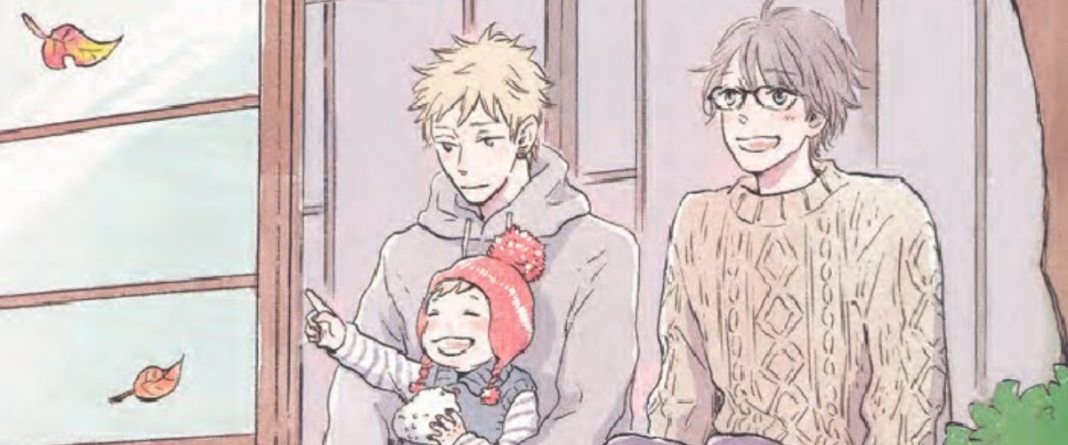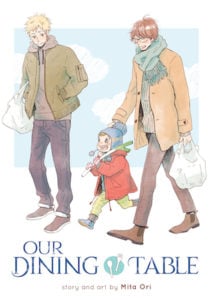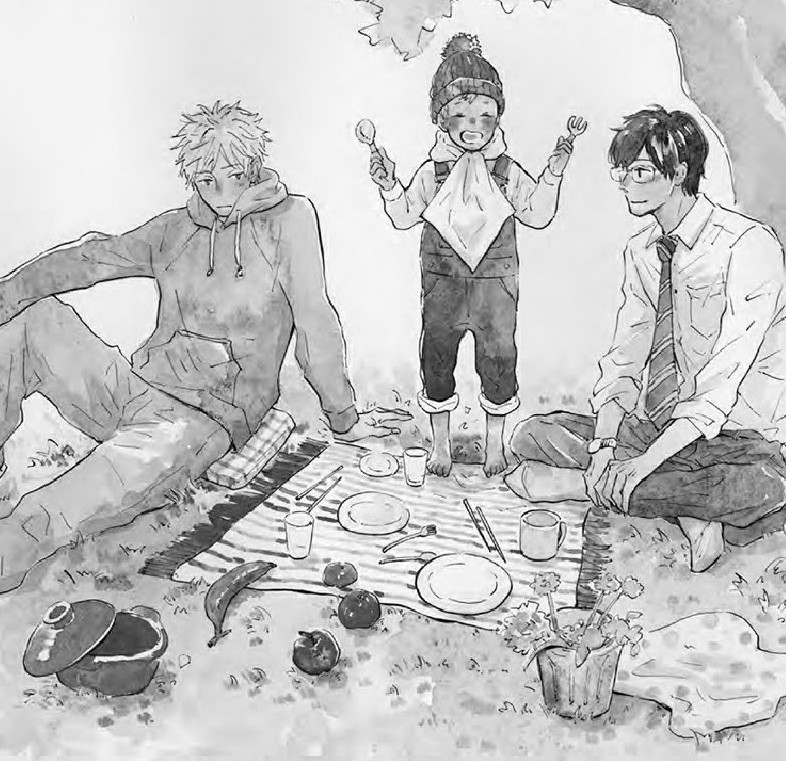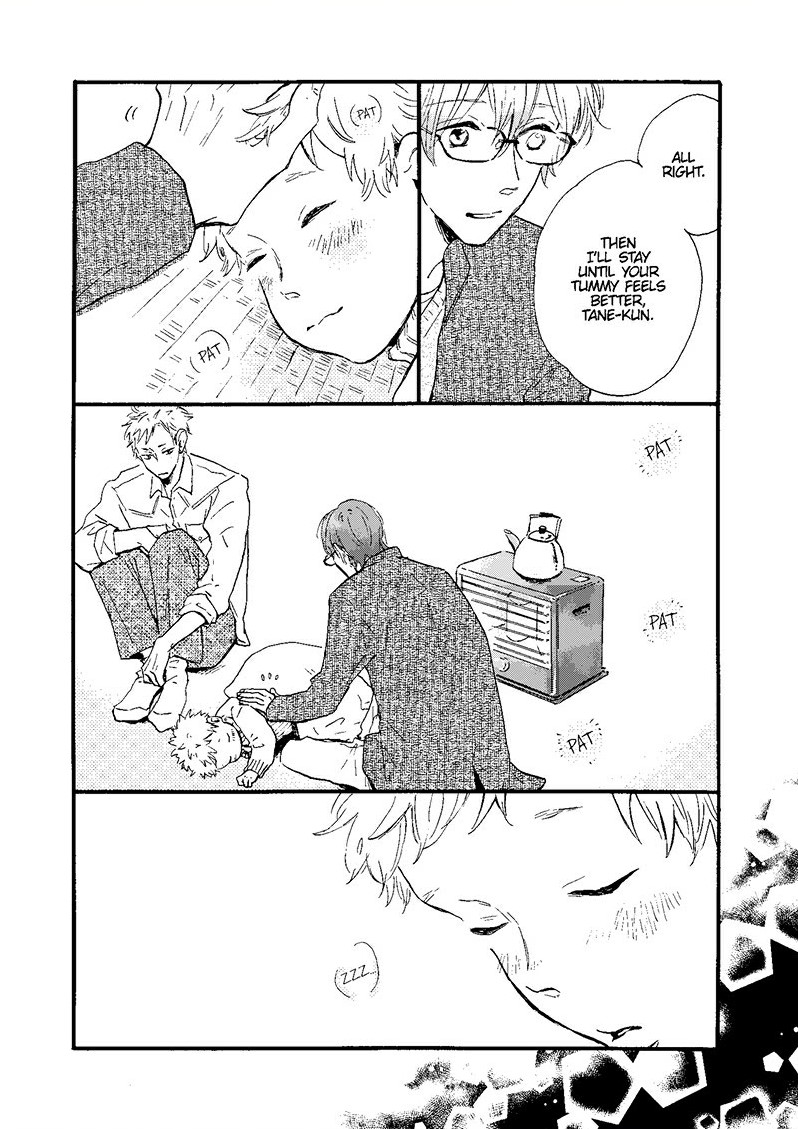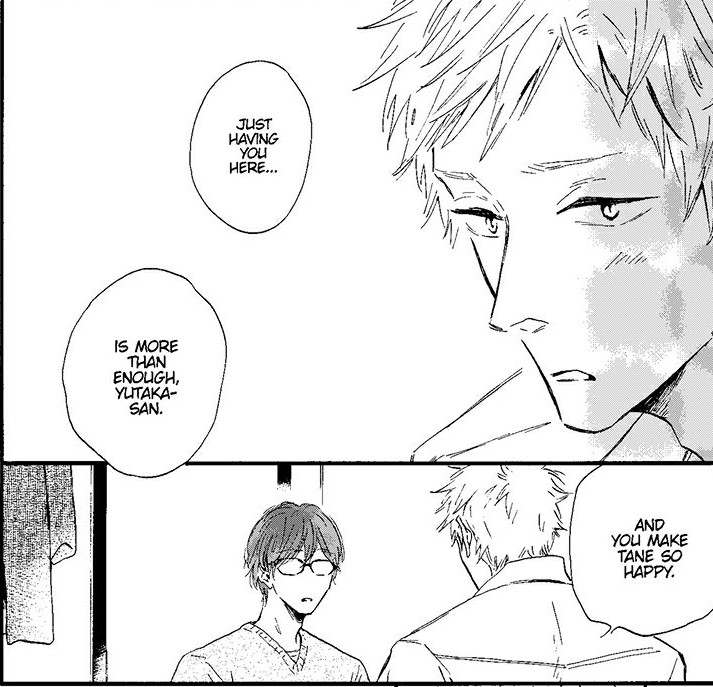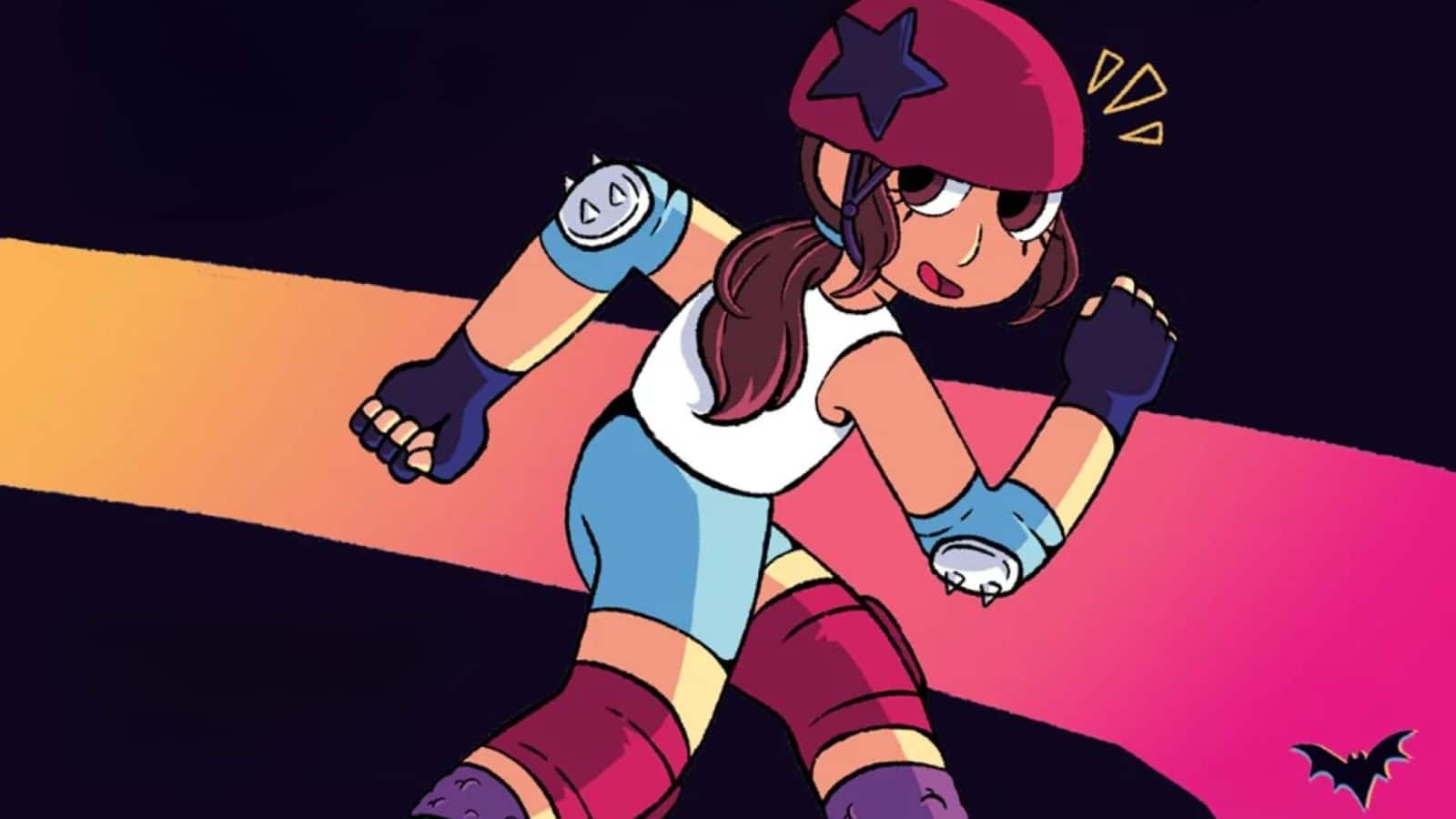 Our Dining Table
Our Dining Table
Story & Art: Mita Ori
Translation: Amber Tamosaitis
Adaptation: Marykate Jasper
Lettering: Laura Heo
Publisher: Seven Seas Entertainment
All the world over, people find themselves connecting over food. We go on dinner dates, run out for a coffee break in pairs, swing by the bar after work, and hopefully sit down to dinner with our families or other loved ones. Food and the rituals that surround it are a central part of every culture, from regular everyday meals to offerings to our deceased.
However, Yutaka, the protagonist of Mita Ori’s Our Dining Table, has difficulties eating around others, stemming from childhood trauma caused by his adoptive siblings. His coworkers have stopped inviting him out for food or drinks because he always turns them down, and this lack of socializing has led him to have a lonely life. He is a good cook, but he only makes himself homemade onigiri, getting the bulk of his nutrition through pre-cooked convenience store meals. It is while he is eating one of these humble meals on a bench in the park that he meets Tane, a little boy whose hunger leads him to beg for some of Yutaka’s large onigiri. Puzzled by the interaction, Yutaka nevertheless shares his food with the toddler until the boy’s much older brother, Minoru, fetches him and scolds him for wandering away.
Yutaka thinks nothing of the strange encounter until the pair of brothers resurface a few days later, and Minoru asks Yutaka if he could teach him how to make the onigiri about which Tane will not stop raving. Surprising himself, Yutaka agrees, thus kickstarting a warm relationship with the brothers and their artist father. No one in this family of men is a particularly good cook, but Yutaka finds, as he emerges from his food-based fears, that the quality of the food matters much less than the quality of the company. For the first time since he was a very small child, Yutaka’s loneliness has abated.
Our Dining Table is in the boys’ love genre of manga, so a gentle romance pops up between Yutaka and big brother Minoru, who is so thankful to Yutaka for coming into their lives and their home and helping them move forward from his mother’s death. This relationship is sweet and simple, taking a back seat to the main theme of found family and bonding over shared meals. The manga also avoids the worst tropes of BL, keeping the romance relatively chaste and without conflict in favor of giving the reader a warm, satisfied feeling — reminiscent of a good meal.
Mita’s artwork, however, is definitely a product of the genre, with its thin linework and delicately beautiful men. Her paneling allows for plenty of dramatic use of negative space, and while backgrounds are generally simple and leave the focus on figures, she knows how to set a full scene when appropriate. She shows decent range in drawing characters of different ages well, with Tane looking realistically child-like (and adorable), and the boys’ father looking old enough to have an adult son.
This standalone volume is pure catharsis, like a bowl of hearty soup on a brisk winter day. Fans of low-key romances who have strong feelings about the healing power of food will want to look to Seven Seas Entertainment for more information on how to get their hands on a copy.


